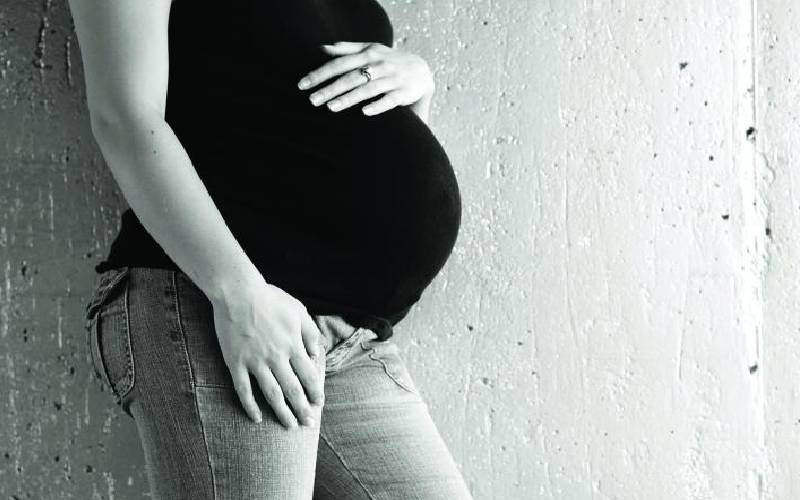
Global health experts, parents of autistic children, and expectant mothers have expressed frustration and confusion following controversial remarks made by US President Donald Trump regarding autism and the use of pain medication during pregnancy.
During a White House press briefing on September 23, 2025, President Trump, accompanied by top public health officials, announced that the Food and Drug Administration (FDA) would begin advising doctors to limit the recommendation of Tylenol (acetaminophen) during pregnancy unless medically necessary. “They are strongly recommending that women limit Tylenol use during pregnancy unless medically necessary,” Trump said. “That’s, for instance, in cases of extremely high fever.”
However, the President went beyond the FDA’s position, directly advising pregnant women: “Don’t take Tylenol. There’s no downside. Don’t take it.” He added, “You’ll be uncomfortable. It won’t be as easy, maybe. But don’t take it if you’re pregnant. Don’t take Tylenol, and don’t give it to the baby after the baby is born.”
At one point, Trump admitted his views were not rooted in science but based on “common sense” and personal beliefs: “I’m just making these statements from me. I’m not making them from these doctors.”
Medical professionals across the world, including in Kenya, have refuted these claims, citing a lack of scientific evidence linking acetaminophen to autism.
Experts speak out
Dr Michael Obanda, a Kenyan pharmacist, pointed out that paracetamol (known as Tylenol in the US) has been in use since the 1960s. “By now, post-marketing surveillance should have captured any such link. If there were an issue, it would likely stem from additives, such as colourants or binders, not the active ingredient itself,” he asserted.
- No evidence paracetamol in pregnancy causes autism, health bodies say after Trump's claim
Keep Reading
Echoing this, Dr Lilian Agufana, a clinical fellow in developmental paediatrics, said: “Paracetamol is widely used to treat pain and fever. In Kenya, it remains the most common over-the-counter remedy, especially in children.”
Dr Agufana cited a large Swedish study that retrospectively analysed children born between 1995 and 2021. Initial results suggested that seven per cent of children whose mothers used acetaminophen during pregnancy were later diagnosed with autism. However, further sibling-control analysis found no causal link. “The sibling study showed no connection between Tylenol use and autism,” she said.
This view aligns with the World Health Organisation (WHO), which maintains that there is no conclusive scientific evidence linking acetaminophen use during pregnancy with autism. The 2024 WHO data classifies autism spectrum disorder (ASD) as a group of developmental conditions affecting approximately one in 127 people globally.
Autism in Kenya
Understanding autism’s prevalence in Kenya is essential to contextualise the discussion. A population-based study published in the PubMed Central database found that 0.63 per cent of Kenyan adolescents and young adults exhibit high autism traits, with males 2.3 times more likely to be affected than females. Additionally, 14.9 per cent presented borderline traits. Kenya currently ranks 46th globally in autism prevalence.
Despite these figures, there are no official national statistics for ASD in Kenya. The Ministry of Health reports a general mental health disorder prevalence of 10.8 per cent, but this encompasses a broader range of conditions, not autism specifically. Experts suggest that increased autism awareness may partly explain the rise in reported cases.
Paracetamol remains the preferred medication for treating fever and pain during pregnancy, particularly due to concerns about the risks associated with alternatives, such as ibuprofen and aspirin.
Dr Agufana warned against the dangers of avoiding necessary medication based on misinformation. “Untreated fever can lead to seizures or signal a serious infection. Avoiding medication, such as paracetamol out of fear can be harmful.”
She added that while the medication is generally safe, incorrect use, particularly overdose, can cause acute liver failure, especially in children with underlying metabolic issues.
In March 2025, Kenya’s Pharmacy and Poisons Board recalled a specific batch of Betamol 500mg tablets due to manufacturing concerns. However, the recall was unrelated to pregnancy safety or autism.
The Board has not issued any warnings linking paracetamol to autism and continues to uphold its safety when used as directed.
In the wake of growing health misinformation, Dr Agufana urged the public to verify information through credible sources. “Refer to bodies, such as the Ministry of Health, the Pharmacy and Poisons Board, WHO, or the CDC for reliable updates. And always speak to your healthcare provider if you’re unsure.”
She emphasised that medical science evolves, and new findings must be rigorously reviewed and validated by experts before public recommendations change.
According to the latest 2025 CDC data, approximately 1 in 31 (3.2 per cent) children aged eight in the United States has been diagnosed with autism, with boys over three times more likely than girls to be affected.
 The Standard Group Plc is a multi-media organization with investments in media
platforms spanning newspaper print
operations, television, radio broadcasting, digital and online services. The
Standard Group is recognized as a
leading multi-media house in Kenya with a key influence in matters of national
and international interest.
The Standard Group Plc is a multi-media organization with investments in media
platforms spanning newspaper print
operations, television, radio broadcasting, digital and online services. The
Standard Group is recognized as a
leading multi-media house in Kenya with a key influence in matters of national
and international interest.











